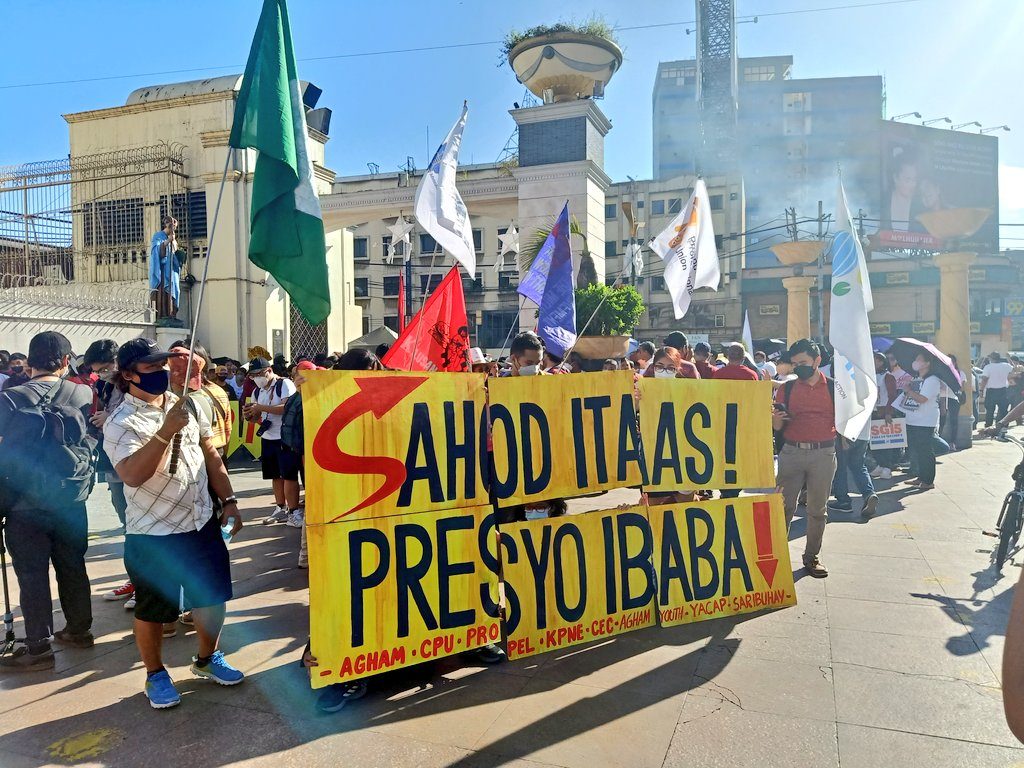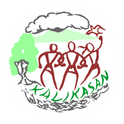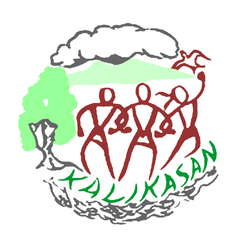The fisherfolk of Rosario, Cavite have barely anything to eat. Ongoing dredging operations by Dutch company Boskalis, contracted by San Miguel Corporation for the construction of the New Manila International Airport in Bulacan, have obliterated local ecosystems. What was once a thriving environment capable of sustaining thousands of Caviteños is now little more than murky brown water.
When you think of the word “environmentalism”, more often than not this would be accompanied by images of trees, Philippine eagles, crystal-clear waters. The masses of people, particularly those in the urban centers, hardly ever factor into the popular conception of the term “environment”. Some might even say that environmental concerns are largely divorced from the gut issues of the people.

So it may raise a few eyebrows seeing environmental advocates take part in campaigns around raising wages and removing unnecessary taxes. Today, on the 159th birth anniversary of the revolutionary Andres Bonifacio, thousands of people across the Philippines marched to a single tune: Sahod, itaas! Presyo, ibaba! Ayuda, ibigay na! (Increase wages! Lower prices! Distribute economic aid!) And yes, environmental groups took part in today’s protest for economic justice.
Linking economic and environment issues
In the face of the worsening ecological and climate crisis, it’s essential that we understand exactly how this crisis is experienced. We can talk of rising global temperatures, carbon emissions, or decreasing forest cover all we want, but at the end of the day, what this means is changing weather patterns for our farmers. This means devastating typhoons flattening communities every year. This means rising sea levels leading to saltwater encroachment into farmlands and coastal villages. In our day and age, these impacts are coursed through the pocket and in the stomach.
It is the fact that incomes are slashed, that government policies run counter to the interests of the people, that turns ecological issues into social crises. Adequate support from the state prior to and after typhoons may have buffered the worst of the impacts on peasant communities. Small fisherfolk in Cavite and Bulacan would be better able to withstand and build back from storm surges if aid was distributed promptly and effectively.
It is also the same spirit of catering to elite and foreign interests behind price increase and stagnant wages that is wreaking havoc on the environment. Massive corporations are granted tax holidays and even public funding to continue their ecologically-destructive practices. Business-as-usual development aggression continues to convert invaluable biodiversity into slabs of concrete. In both cases, people and planet are made to bear the impacts.
A call to action
The Marcos Jr. administration must therefore be pushed to respond to the urgent crisis at hand. Marcos Jr. himself can intervene by certifying legislation around wage and salary increases as “urgent”; calling for the removal of taxes on basic necessities and fuel products; and calling for the repeal of the Oil Deregulation Law. Yet it seems like the historic 7.7% inflation rate does not seem to be much of a problem for those working in the halls of Malacañang.
If environmental organizations see the power in grassroots action — as many already do — it is critical that environmentalists stand in solidarity with the masses in the fight for better wages and lower prices for basic goods. This also means joining in the calls to hold Marcos Jr. accountable.
For the fisherfolk in Cavite and so many others, the fight for the conservation of our environment is inseparable from the fight for a better, more dignified life. We can see here exactly how our call for ecological justice blends with the call for broader social justice. Let us continue to join and struggle alongside the broad masses of the Filipino people for a better and more sustainable future for all.
Jon Bonifacio (he/they) is the Acting National Coordinator of Kalikasan People’s Network for the Environment (Kalikasan PNE). He is also a member of the Advisory Council of international human rights watchdog Global Witness. A youth environmental activist, he previously served as the National Coordinator of Youth Advocates for Climate Action Philippines (YACAP).


